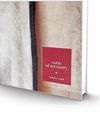
Virginia House no longer smells of tobacco. Rather, it smells of fragrant agarbattis. What once housed the cigarettes of W.D. & H.O. Wills is now the home of milled atta, baked cookies, incense sticks, and more.
The big daddy on the cigarette block, ITC realised it was but just a wanna-be kid when it entered categories like biscuits and atta (wheat flour) in 2002. It was surrounded by well-entrenched top guns of the FMCG sector (fast-moving consumer goods, a term used to describe products ranging from soaps and snacks to flour and floor cleaners) from global giants like Unilever, Nestle and P&G to homegrown players like Dabur and Parle. The writing on the wall was clear. The company had to do something drastic and dramatic if it had any hopes of surviving, let alone dominating, the segment.
“In a globalising marketplace, you cannot compete unless you bring something unique to the table,” said Sanjiv Puri, chairman and managing director of ITC Ltd. While planning its ambitious foray into biscuits, strategy sessions at Virginia House, the colonial building on Kolkata’s Chowringhee Road (now officially Jawaharlal Nehru Road) that housed its corporate headquarters, were clear: in a market dominated by household names like Parle and Britannia, you need to break the clutter. But how?
“We started innovating from the beginning. Our first Marie (tea biscuit) was an orange one!” said B. Sumant, currently ITC’s executive director and back then part of the team that launched snacks. “We had an orange Marie, a regular Marie, and then we came up with an oats Marie. We were the only ones I knew till date having an orange Marie and an oats Marie!”
Denne historien er fra February 11, 2024-utgaven av THE WEEK India.
Start din 7-dagers gratis prøveperiode på Magzter GOLD for å få tilgang til tusenvis av utvalgte premiumhistorier og 9000+ magasiner og aviser.
Allerede abonnent ? Logg på
Denne historien er fra February 11, 2024-utgaven av THE WEEK India.
Start din 7-dagers gratis prøveperiode på Magzter GOLD for å få tilgang til tusenvis av utvalgte premiumhistorier og 9000+ magasiner og aviser.
Allerede abonnent? Logg på

Use multi-asset investing to overcome portfolio volatility
EQUITY MARKETS have been choppy during this year. After rallying for the better part of the first nine months of 2024, equities corrected sharply in October and November, before taking off once again on rally mode in December.

Twist of faith
Upamanyu Chatterjee is back with his wry sense of humour in his new novel, and most of it is directed at religion and spirituality

THE GLORY OF SARI
Saris of Memory weaves together history and textiles, highlighting key moments from the author's collection

We win together
We invented chess, which was pretty cool of us. The original game 'chaturanga'that is four divisions (infantry, cavalry, elephantry and chariotry)-was a war strategy game. When the game travelled to the Middle East, they mangled the Sanskrit and it ended up being called 'shatranj' instead.

BEATS THAT HEAL
Music ignites the light within us, says Grammy-winner Chandrika Tandon

Older, smarter, sexier
Those who worship him regardless of where he works have continued to do so. Such is the power of Alessandro Michele, that after being the face of some mega brands for 10 years (namely Gucci and now Valentino), he remains bigger than the labels themselves. His debut collection for Valentino was presented at the recent Paris Haute Couture Week, and it has been adored by his adorers.

The road to peace
Future political dialogues should explore means of ensuring a more robust autonomy to tribal communities

Diary of a Sherpa
Amitabh Kant's new book is a comprehensive account of the G20 Summit held in Delhi in 2023

The annoying orange
Everything is great. All is sunshine. I am an eternal optimist.\" It's the fad of our TikTok times everything is not great, the sun sets daily, nothing is eternal. If anything, everything is ephemeral, night brings darkness, and optimism often crumbles under the weight of history. British philosopher Roger Scruton warned: \"Hope untempered by the evidence of history is a dangerous asset, one that threatens not only those who embrace it, but all those within range of their illusions.\"

NO SEAT, YET UPBEAT
The Congress is buoyed by its increased vote share in Delhi, and feels it can push the AAP into further decline